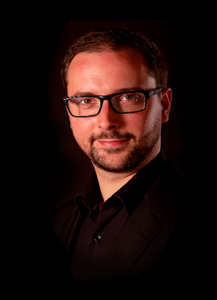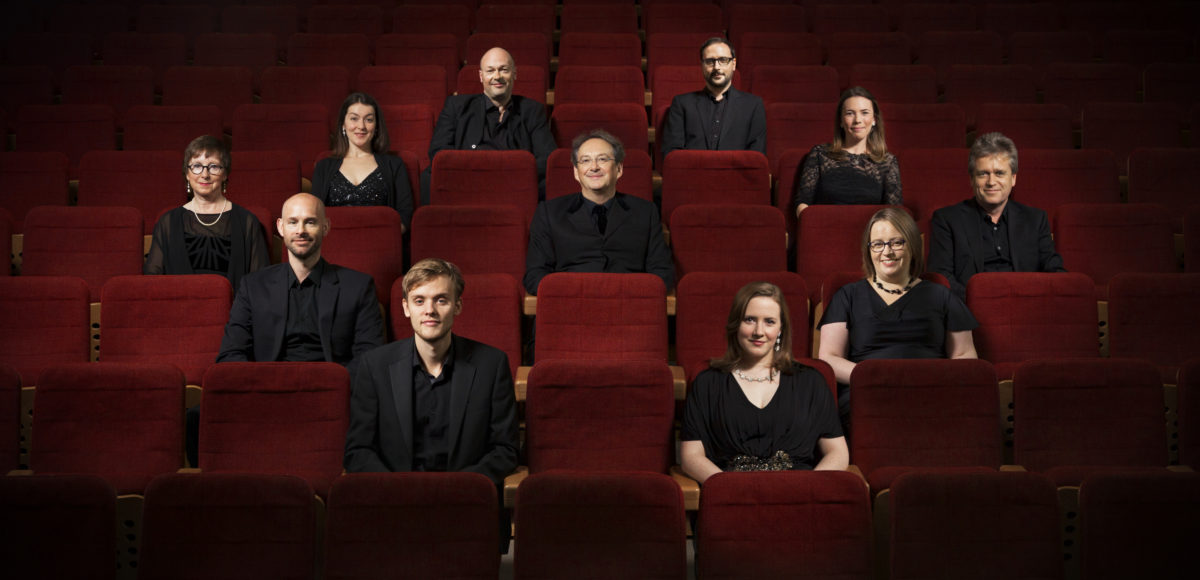Tim Scott Whiteley was fond of The Tallis Scholars before he ever became one.
“I was a big fan in my late teens and at university, but I never thought for a second I would end up singing with the group.”
It was a natural result though. Whiteley, in his late teens, was in a choir at Lichfield Cathedral near Birmingham (England) when he was exposed to a lot of what is known as Renaissance polyphony. And he was hooked.
Ironically as a boy treble, Whiteley admits, he was not all fired up by the prospect of singing this kind of music. It was a bit saccharine for his taste then. But once his voice matured into the bass that it is today, he was hooked by the harmonies.

Tim Scott Whiteley. Photo: Eric Richmond
“As a boy treble, I used to not like renaissance polyphony but as a bass or a baritone you had the interest of the harmony in a way that you didn’t when were a treble.”
This was the era of Brit Pop — Oasis, Blur Grunge music. He admits to liking the music of Canada’s Billy Talent, for example. Ironically, Whitely does do a lot of work as a vocal coach for aspiring pop musicians fro his home base in Vienna, Austria.
He also helps Austrian pop stars learn to sing in English.
“I fell into it because some of my best friends in Vienna work in that industry” Pop also runs in the family. His brother-in-law is in a German pop duo “and making an absolute killing. Last year he performed in front of 125,000 people in one concert.”
Whiteley though has gone in a different route.
“I had done a German and linguistics degree in university and as part of that I spent a year in Vienna.”
After graduation he wasn’t excited about the prospect of joining “the choral rat race in London.” So he tried Vienna. Fifteen years later he’s married with a young child and settled in the Austrian capital.
“I spent the first few years in Vienna teaching English and auditioning. He finally caught on with a Belgian ensemble and then a British group called Alamire run by David Skinner.” He also co-founded Cinquecento which has been going for 15 years.
In 2007, one of the basses he worked with in Alamire asked him if he was interested in helping out in a Tallis Scholars recording session.
“He knew I was around and a colleague had fallen ill. I dropped whatever I was eating or drinking and said OK.
“Without any rehearsal I walked into Merton Chapel in Oxford, was given the Josquin mass we were recording. I met Peter Philips. On went the red light and we started recording. That was my first taste of singing with Tallis.
Twelve years later, he’s still singing some 80 concerts a year with The Tallis Scholars, one of the world’s most respected ensembles.
Tallis sings “pretty much” only sacred music. These are works of that are structurally “absolutely gargantuan,” Whiteley said.
For example, one of the pieces Tallis will perform in a Chamberfest concert on Dec. 9 in Ottawa is by William Cornysh. This setting of Salve Regina is from the Eton Choirbook.
These larger sacred works are huge votive antiphons.
“They will go from two parts up to five parts. The Eton Choirbook has some nine part pieces. A lot of people have compared that kind of musical structure to the structures of the buildings of the time. The grandeur of those Gothic buildings must have inspired composers to create that architecture in music.”
In the Ottawa program, Tallis will sing the Miserere Mei by Allegri. The piece, Whiteley says, in the strictest sense of the term is popular music. And that work has been an evergreen of the Tallis scholars from word go.
“It is certainly the piece we perform the most. The founder of the Tallis Scholars, Peter Phillips, has kept a tally of how many times every one has sung it.”
There is an “apocryphal” story about this piece, Whiteley said. It says that the church had wanted to keep the Miserere out of the hands of the larger world until the young Mozart heard it performed and he transcribed the music and shared it around.
True story or not, the piece “is a real crowd pleaser anywhere we go in the world. It also has choreography — as much choreography as we do. The choirs are divided and the chant solo is placed elsewhere in the hall, so we have a surround sound going on.
“Often the solo choir is placed behind the audience so as soon as we start singing you’ll hear this rustle of programs as everyone turns around to see where we are. It will often get a rapturous applause because it is moving music.”
Otherwise the concert program on Dec. 9 has been built to compare and contrast different settings of texts done by composers of different eras and locals.
For example, along with the Cornysh mentioned earlier, Tallis will also sing a Salve Regina set by the 16th century Mexican composer Juan Gutiérrez de Padilla. This piece is a new world polyphony in eight parts. The ensemble will also tackle a Salve Regina by Francis Poulenc a 20th century French composer.
There will also be different settings of Ave Maria, including by Cornysh and Poulenc. And in the second half, for example, an O sacrum convivium by Olivier Messaien will be paired with one by Thomas Tallis.
Just because they sing polyphony, that doesn’t mean the Scholars are restricted to the Middle Ages and the Renaissance. They have recorded music by the great Estonian composer Arvo Pärt, for example.
The music matters for Whiteley but so too do his colleagues.
“We all sing for the audience and for the sake of the music, of course we do, but also we sing for each other. We want to do our best for our colleagues. The Tallis Scholars is two to a part — two basses, two tenors, two altos, two to four sopranos. Getting on with your desk partner and being able to look in with your desk partner is key to this. The great thing about Tallis Scholars is that we all get on. That is so important.
“You hear about artists who get on stage, don’t talk to each other and take separate taxis home. I don’t know how that can be a fulfilling way to work. We like to go out to dinner together.
“And we have to trust each other because we are singing a capella.”
Members come and go over time, he said. “It’s a little like a relay race, passing the baton from one generation to the next. You learn from you desk partner and if they then leave, it’s your turn.
The Tallis sound is distinctive. Whiteley describes it as “forthright.” Tallis voices aren’t put in boxes. “We aren’t clamping down on what we are doing. The soprano sound is the defining part. It has to have this bell-like quality and this very clean, unfluttered sound.”
The Scholars are in North America for concerts in places such as Philadelphia, Boston, Toronto, Ottawa, Montreal, Kansas City, Missouri, Princeton, New Jersey. The last concert on the tour is in New York. As for Whiteley, once over he goes on to gigs in northern France and Munich. He’s finally in Vienna on Dec. 20. Thank goodness for Facetime. It means his son will recognize him when he returns home.
Chamberfest presents The Tallis Scholars
Where: Carleton Dominion-Chalmers Centre
When: Dec. 9 at 7:30 p.m.
Tickets and information: chamberfest.com







